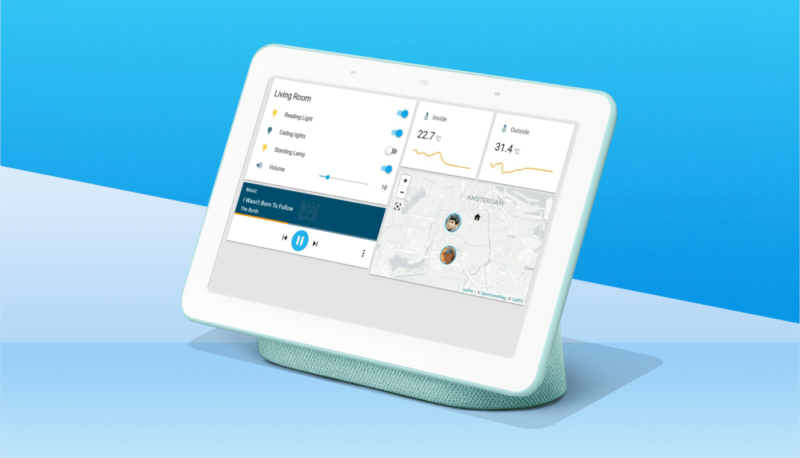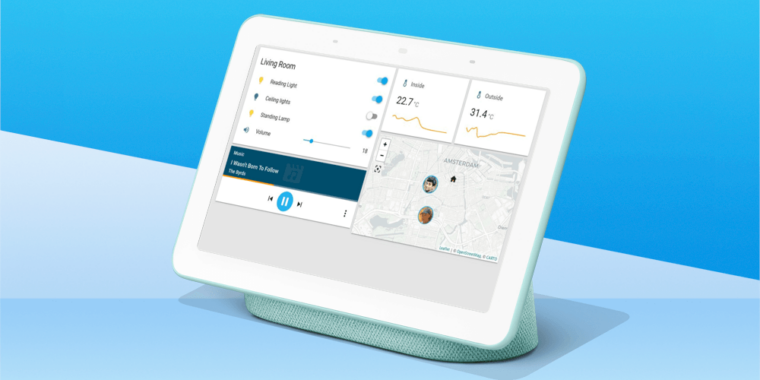
Are cloud-based voice assistants doomed? That seems like an overly dramatic question to ask if you look at the current state of millions of users of Google Assistant, Amazon Alexa, and Apple’s Siri, but we’re not so sure about the future. Google and Amazon have backed away from their voice assistants recently, with Amazon firing a big chunk of the Alexa team due to it losing $10 billion a year. Google isn’t quite at the “fire everyone” stage, but it is reportedly less interested in supporting the Assistant on third-party devices, which would be a crippling move given Google’s extremely small hardware division. Everyone built these systems assuming a revenue stream would come later, but that revenue never came, and it’s starting to seem like the bubble is bursting.
One project that has a heavy dependence on Big Tech voice assistants isn’t sitting around and waiting for doomsday. The team at Home Assistant is declaring 2023 “Home Assistant’s year of Voice.” This is basically the leading smart home project saying, “If these cloud voice assistants don’t provide Big Tech with a multi-billion dollar revenue stream, that’s fine, we’ll do it ourselves!” There are a few nascent, open source voice assistant projects out there already, but the Home Assistant team has proven it can manage a big project. It has a huge, thriving community and enough revenue to have full-time employees, making this the new frontrunner for a viable local voice service.
Plus Home Assistant isn’t starting from scratch—it went and found what it called the “most promising” open source voice assistant out there, “Rhasspy,” and hired the lead developer, Mike Hansen, to work full-time on voice in Home Assistant. Hasen will now work at Nabu Casa, the Home Assistant’s commercialization company. According to Home Assistant’s founder, Paulus Schoutsen, “Rhasspy stands out from other open source voice projects because Mike doesn’t focus on just English. Instead, his goal is to make it work for everyone. This is going great as Rhasspy supports already 16 different languages today.” The plan is to support all 62 languages the Home Assistant currently supports, but with voice, all without needing an Internet connection.
Schoutsen says Home Assistant will keep the scope of the project “manageable” for now and is going to “limit the number of possible actions and focus on the basics of interacting with your smart home. No web searches, making calls, or voice games.” Of course, there will probably be some way the Home Assistant community can tack extra features onto it, and then it will quickly balloon into imitating Hal 9000 and doing a million other extra things.
The problem with all these Big Tech voice services is that they don’t have a way to generate ongoing revenue. They don’t really have a way to show ads, and nobody wants another subscription service. They do generate an ongoing cost, though, due to the server time needed to process all that voice communication. Google and Amazon exacerbated the problem by selling their voice hardware at cost in an attempt to win the voice assistant rush, while hoping an additional revenue stream would come later. Apple launched a high-end Siri speaker, the HomePod, in 2018 at a then-shocking $350 price tag, but in retrospect, that looks a lot more sustainable than whatever Amazon and Google were doing.
Google seemingly tried to solve this problem with its second-generation voice speakers, which moved “some” voice processing to local chips. Moving some voice processing off the cloud will cut down on server time, but it’s unclear if that’s enough to meet Google’s incredibly high standards for continuing product support.
Moving a voice assistant into a host-it-yourself environment lets you pay those costs as at a reasonable rate (some kind of hardware to start and then just the electricity bill) without having to worry about the weird, shifting priorities of a Big Tech ecosystem. There will probably be a bunch of other advantages, too. A local voice assistant would be great for privacy, and it will feel less like you’re running an always-listening Internet wiretap in your home 24/7. Home Assistant has also proven that keeping all these local results in a much faster experience for your smart home, and Google has said the same about its limited local voice processing.
The Home Assistant already has a text-only “Conversation” command system, so it’s a matter of building that out and wiring it up to voice input and output. What’s unclear about this is the hardware solution beyond the usual “pile of wires and circuit boards” that usually dominate open source smart home projects. Part of what makes the Google Assistant and Alexa so popular is a selection of good-looking speaker/microphone combos that you can spread around the house without looking like a mad scientist. The Home Assistant’s commercialization company, Nabu Casa, has been working to close this hardware gap lately, making plug-and-play server boxes and dongles to bring things like Matter support into the Home Assistant ecosystem. Maybe it could launch a speaker.








